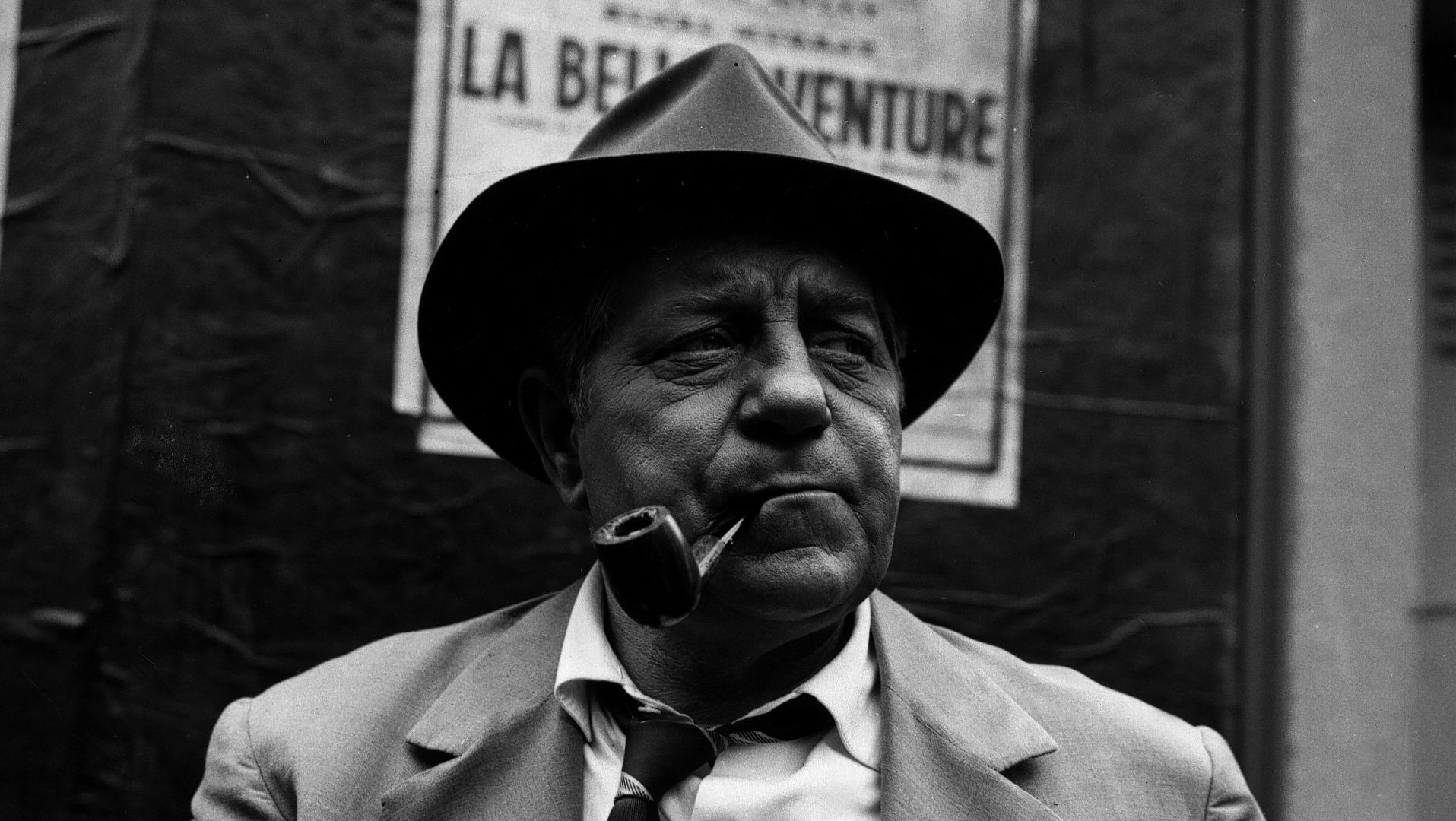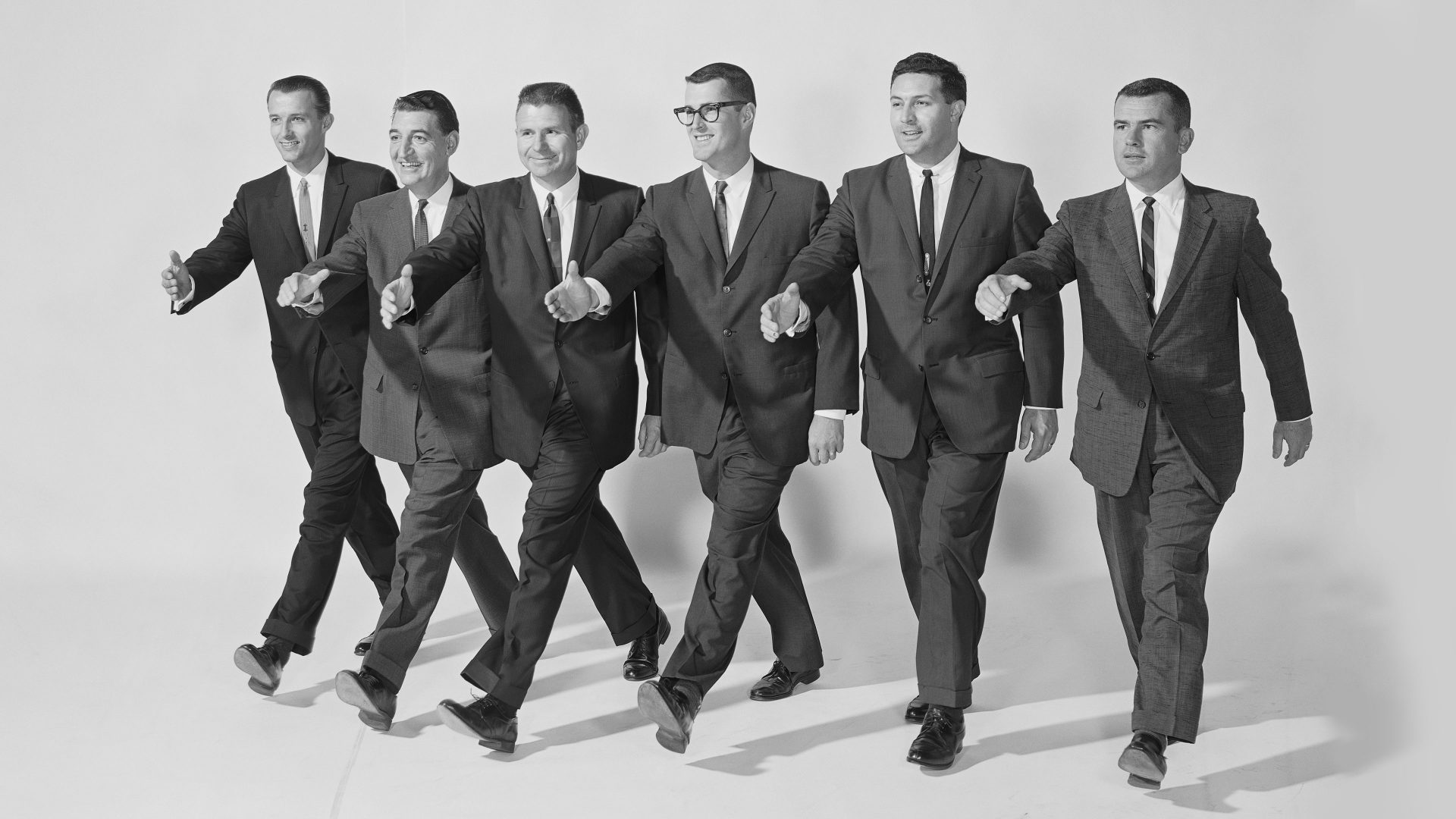The last thing Jean-Alexis Moncorgé wanted to be was a performer.
For as long as he could remember, he’d seen his parents labour on tiny corner stages in cafes and in sticky-floored music-halls. They gave everything in return for little reward beyond enough money to live on and the promise of a return date in a few weeks.
Some audiences were appreciative, others were disinterested at best, many were openly hostile. The sweetness of their voices and the grace of their movements counted for little against the whims of boozy carousers.
Jean-Alexis spent most of those nights with his grandparents in a village north of Paris, but sometimes patrons might glimpse a small boy at the side of the stage, watching glumly as his mother and father went through routines and songs he’d known by heart since he could barely walk. The more he observed of their profession, the more determined he was to earn his living in a different way.
“I remember my father as a man who passed through our home like a sort of mysterious traveller, most often when I was sleeping,” Gabin would recall. “He came home late on the last train, slept all morning, then left at lunchtime while I was taking my nap.”
Yet, despite all ambitions to the contrary, the sad-looking boy next to the stage would go on to become the most celebrated actor France ever produced.
A brooding, charismatic screen presence, Gabin in his prime was a leading man to rival anything Hollywood could offer. He had the world-weary air of Humphrey Bogart and the simmering presence of Spencer Tracy, all dignified stoicism and fuming strength, the perennial outsider, a man battling against fate and seething against injustice; the gangster, the thief, the murderer on the run.
As age softened his edges he gravitated towards the right side of the law, playing policemen, judges, even Georges Simenon’s Inspector Maigret. His conventional heartthrob days ended with the war, but he remained a charismatic presence on screen, barely acting, letting the audience fill in the spaces.
Jean Renoir said of Gabin: “Magnificent actor that he was, he got his greatest effects with the smallest means”. One actress recalled: “I thought I was the star of the first picture I made with Jean right up until I saw the finished film. In one scene he had no lines at all, he was just standing about while several of us were involved in a furious argument. Sitting there watching in the dark, I found suddenly that instead of listening to my words or to the words of the other actors, I couldn’t take my eyes off Jean. His silent presence suggested that whatever he was not saying was more interesting than what was being shouted by the rest of us”.
When Gabin left school at 14 and began working as a labourer, all this, not to mention the Legion d’honneur he’d win for his services to French cinema, seemed a very long way off indeed.
Ferdinand Moncorgé watched with frustration as his son passed through a series of menial jobs: newspaper seller, office boy at an electricity company, foundry worker, building-site cement mixer. Ferdinand, who used the name Gabin on stage, had always dreamed of being a performer and was devastated when his son did not share the same passion. It must be there somewhere, he thought, there must be a way of igniting it.
The opportunity came when the 18-year-old Gabin finished a job working on the construction of a railway station. Telling him there was an opening behind the scenes at the Folies Bergère, Ferdinand failed to mention it was as an extra in the theatre’s stage productions. Reluctantly, Jean accepted the job, was soon promoted to the chorus, began appearing in sketches and revues and finally became a fully-fledged song-and-dance man in the manner of Maurice Chevalier.
His first significant film part came in 1930’s Chacun sa chance, one of the very first French talkies whose title perhaps appropriately translates as “Everybody gets a chance”. He’d taken his father’s stage name as his own in gratitude for guiding him towards their shared profession and first saw it in lights for his starring role as an itinerant drifter in Julien Duvivier’s 1934 Maria Chapdelaine.
Three years later he hit the big time as the eponymous lovestruck gangster in Duvivier’s Algiers-set Pépé le Moko, then made La Grande Illusion, the first in a series of successful collaborations with Jean Renoir and a classic of French cinema which, remarkably for a foreign language film, ran in one New York cinema for six months. Jean Gabin, the reluctant actor, was the biggest film star in France.
When war came Gabin refused to make films for the occupying German or Vichy regimes and made his way via Spain to join Renoir and Duvivier in the United States. Having turned down countless peacetime offers from Hollywood, he made a scatter of mediocre films there and began a relationship with Marlene Dietrich. But in 1943 he decided to assist more directly in the defence of his country than the propaganda-by-numbers films he was offered and which nobody in France would see anyway.
He boarded a ship for Casablanca as part of an Atlantic convoy that was attacked by the German navy. He served as a gunnery instructor on a training ship in North Africa and after the D-Day landings joined a tank division that played a key part in the liberation of Paris, action that earned Gabin the Croix de Guerre.
It was 1950’s Touchez pas au grisbi in which he played a retired gang boss drawn back into the fray against his will that revived Gabin’s career, leading to two decades of memorable character roles that cemented his place as the totemic figure of French cinema. His screen transformation from blue-collar villain to establishment pillar was sealed in 1961 when he played the president of France in Henri Verneuil’s Le Président.
For an actor who rarely ventured into English language films, his scene-stealing performances were still noticed approvingly overseas. In 1961 the Times wrote of Le Clochard, and, in effect, his entire career: “It turns out to be nothing more or less than an excuse for letting M Jean Gabin loose on the screen, to monopolise it and turn it into a thing of enchantment”.
In later years he spent increasing amounts of time raising cattle and horses on his farm in Normandy and on several occasions announced his retirement from the screen before soon being coaxed back. When he died it was as if a vital part of France died with him.
Gabin was the embodiment of the French 20th century, representing something far greater than the characters he played. He’d fought for his country with distinction and been its screen personification as presented to the world. At the time of his death, a Paris cinema was showing a season of his films under the title Gabin le Magnifique. His funeral brought thousands on to the streets.
All the more remarkable considering the last thing Jean-Alexis Moncorgé had wanted to be was a performer.




